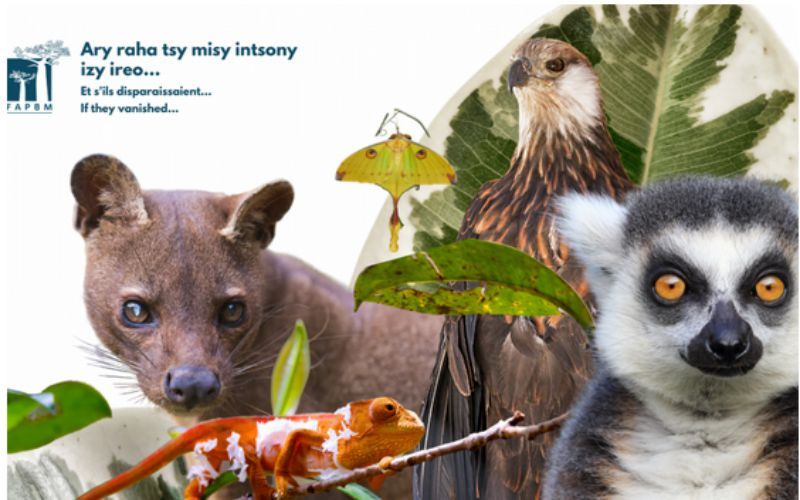
The Foundation for Biodiversity and Protected Areas of Madagascar (FAPBM) is committing to a grant of USD 2,735,722 for the Madagascar Protected Areas System (MPAS) for 2021. This grant will be used to:
- Cover recurrent operating costs, local development and conservation activities of 36 protected areas (through among others annual grants),
- Respond to emergencies that threaten biodiversity and conservation in protected areas (through the Special Intervention Funds),
- Strengthen the capacity of new protected areas (through the Support Fund for Strengthening in New Protected Areas),
- Finance an offset program in one (1) protected area,
- Finance the extension of marine protected areas within the MPA GEF 6 project (Global Environment Facility – Marine Protected Areas).
The MPAS is severely suffering from the health restrictions of the Covid-19 pandemic in 2020, which is likely to last in 2021. Indeed, tourism is one of the major sources of revenue for protected areas. The financial resources available to managers have dramatically decreased considering the growing threats.
- According to a study done by the Helsinki University, 29 protected areas out of 123 suffered more fires in 2020 compared to 2019, 6 of which with a drastic increase [1],
- Between April and July, poachers were arrested by the authorities with radiated turtles in the southwest of the Great Island, [2]
- In May, 200 hectares of mangroves were cleared in Ambanja, [3]
- Illegal activities such as charcoal production and wild land clearing have also increased. In the Bongolava Protected Area, northwest of Madagascar, for example, the number of illegal coal furnaces recorded rose from 53 in December 2019 to 123 in May 2020, or more than 100%, [4]
- The health emergency also has affected the local communities, who depend on these protected areas, and made them vulnerable. Craftspeople, fishermen and farmers suffered from the huge price drop. Without access to the market, they have been forced to sell their products at a tenth of the normal price in some areas. [5]
Despite this, protected area managers and partner communities are striving to preserve our biodiversity.
The FAPBM calls for a contribution to the sustainable financing of Madagascar’s natural capital: “The COVID-19 crisis has wiped out half a billion dollars in expected tourism revenues for Madagascar since January, according to official estimates. [6] This health disaster has highlighted the resilience of the FAPBM’s funding mechanism, but it has also underlined the Foundation’s inability to meet all the needs of the MPAS. Help us do more, contribute to the FAPBM so that, like the baobab tree, the biodiversity sheltered within protected areas can enjoy exceptional longevity and thus assume their role as life support for future generations. Finally, these 2021 grants would not be possible without the trust and support of our contributors and the Malagasy government, whom we would like to thank,” said Ms. Sahondra RAJOELINA, President of the FAPBM Board of Trustees.
In the coming year, the FAPBM will be required to monitor the impact of its funding more accurately. The performance indicators of the financed protected areas will be strengthened in order to evaluate the effectiveness of their management, their biodiversity conservation, and especially their local community development activities. This standardization is part of an alignment with the new CFA Practice Standards as well as the implementation of an environmental and social safeguard system.
About the FAPBM
Founded in 2005, the FAPBM is a Malagasy private Trust Fund that provides an innovative mechanism for sustainable financing for protected areas system in Madagascar.
Its expertise in financing the conservation of protected areas, the good governance of the funds, the relevance of its interventions and the sustainable impacts it helps to create allow the FAPBM to benefit from the confidence of its capital contributors (the German development bank KFW, the French Development Agency, Conservation International, WWF, the World Bank and the Malagasy Government).
[6] Coronavirus – Malagasy tourism sector loses 1.9 trillion ariary




